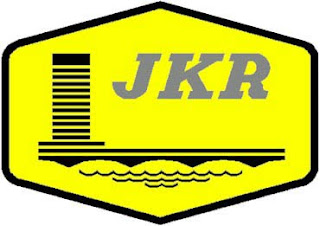1. Electrical/Electronic
Electrical and Electronic are very much alike but also come with some differences. Generally, electrical engineering refers to the macro or large scale of electrical system such as transformers, high and medium voltage distribution, motor controls and so on. Electronic, on the other hand, deals with small scale, solid state components and systems such as integrated circuit, transistors, capacitors and others.
Electrical and Electronic engineers make up the big bulk of the engineer population in Malaysia, which possibly means most engineering job vacancies are to be found in this field. And the smartest of these engineers can be found in the likes of General Electric, Sony, Intel, Motorola, Toyota, Maxis and so on – just to name a few. They are also not limited to carrying the job title of Electrical or Electronic Engineer but other fancy names such as System Engineer, Product Specialist, Application Consultant and so on.
2. Mechanical
Also a popular choice, and a good one too. The elements of physics, design, aerodynamic, thermodynamic, energy,
drawing and all sort of related stuff are familiar with the field of mechanical engineering.
For example, a Design Engineer with Sony’s Bangi plant may be responsible to design and enhance the plastic casing of Sony’s consumer products such as DVD player, TV, audio and peripheral devices using 3-D AutoCad or Catia as his main designing tool.
A Mechanical Engineer with Johnson Electric, on the other hand, may involve in the studies of the friction of their motor devices and apply the mechanical principles to reduce the friction and enhance the product specs.
Mechanical engineering elements are also important for other industries like automotive, aerospace and aeronautical, shipbuilding, robotic, nanotechnology, hydraulic and turbines, and many more.
3. Chemical
Petronas and Shell may first come into mind when chemical engineering is mentioned, but rest assured it is much more than that. In fact, many find happiness working outside of these two companies. While the title Chemical Engineer itself can mean a wide range of distinguished roles and responsibilities, let’s generalize a Chemical Engineer as someone who works in the chemical industry and deal with chemical stuff in his daily job. Fair enough, right?
The chemical field also branches into other sub-specializations which include process, petroleum, materials, maintenance and so on. The principles of chemical engineering can be applied to industrial chemicals, petrochemicals, pharmaceutical, explosives, glass, paints and others. You can read about the life of a chemical engineer here.
4. Civil
Civil Engineering is closely associated with the construction, design, maintenance of infrastructures and buildings. If you look at some architectural wonders and designs dating back to thousands of years ago like the Pyramid, Wall of China, Coliseum, Taj Mahal, the hanging garden of Babylon and so on, it is pretty much safe to assume that civil engineering is the earliest engineering field of the mankind – even though some claimed the aliens helped them.
One would argue that Taj Mahal engineers were better than the local engineers who built the Malaysia Parliament building, which is now being consistently plague with the bocor problem, even though the former died some 300 years ago.
5. Telecommunication
Think telecommunication, think of the gadget you’re carrying every day. Yes, it is the thing you use to send the prank SMSes, get connected online with 3G and watch streaming videos in real time. Wireless is presently the most sophisticated telecommunication engine and technology, and in Malaysia, the biggest players come in the form of Maxis, DiGi, Celcom, Ericsson, Nokia, Motorola and Siemens.
Telecommunication can generally be defined as the transmission of signals for the purpose of communication. While waving fire smoke to your distant friends may mean a telecommunication exercise, the modern telecommunication is much more complicated and involves the use of telephones, radio or computer, and takes account of speed, accuracy and security. The most prominent figure in the history of telecommunication engineering is perhaps Alexander Graham Bell.
Credit : Skorcareer.com.my

























